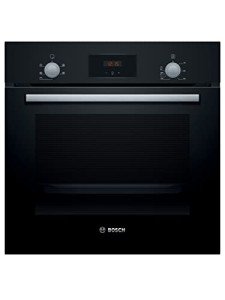The Integrated Cooker: A Comprehensive Guide to Modern Cooking Solutions
The advancement of kitchen appliances has transformed cooking and cooking techniques, making meal preparation more effective and satisfying. Amongst these developments, the integrated cooker sticks out as a flexible and space-saving addition to contemporary kitchens. This short article explores the numerous aspects of integrated cookers, including types, advantages, features, and a contrast with standard cooking approaches.
What is an Integrated Cooker?
An integrated cooker is a compact cooking home appliance that combines multiple cooking functions into one unit. Typically built into kitchen cabinets, these cookers are designed to conserve space while enhancing kitchen aesthetics. They normally integrate a variety of functionalities, such as baking, barbecuing, steaming, and even pressure cooking.
Key Features of Integrated Cookers
- Multi-Functionality: Integrated cookers can carry out various cooking jobs, removing the need for multiple appliances.
- Space-Saving Design: These cookers fit perfectly into kitchen systems, making them perfect for contemporary homes with minimal space.
- Advanced Technology: Many integrated cookers come geared up with smart innovation, such as programmable settings, touch-screen controls, and connectivity alternatives.
- Energy Efficiency: Built with modern-day products and style, they frequently take in less energy compared to conventional cooking techniques.
Types of Integrated Cookers
The market uses different types of integrated cookers, each with its special set of features and functionalities. Here are the most typical types:
| Type | Description | Example Use |
|---|---|---|
| Built-in Ovens | Ovens that are fitted into wall units or cabinets | Baking bread, roasting meats |
| Induction Hobs | Cooktops that use electromagnetic energy to heat pots and pans | Rapidly boiling water, sautéing |
| Steam Ovens | Appliances that prepare food using steam for much healthier outcomes | Steaming veggies, fish |
| Microwave Ovens | Integrated microwaves for fast heating and cooking | Reheating leftovers, making popcorn |
| Combination Ovens | A mix of traditional and steam cooking innovations | Baking while making sure wetness retention |
Benefits of Using Integrated Cookers
Integrated cookers provide a host of benefits over traditional cooking tools. Below are a few of the essential advantages:
- Space Efficiency: Ideal for compact cooking areas, integrated cookers utilize vertical areas effectively.
- Structured Cooking Process: With several functions readily available, users can transition from one cooking method to another with very little effort.
- Improved Aesthetics: Many integrated cookers been available in sleek styles that mix well with modern-day kitchen decoration.
- Improved Cooking Control: Programmable features allow for accurate cooking, ensuring much better meal results.
Integrated Cookers vs. Traditional Cooking Appliances
When thinking about meal preparation choices, it is important to weigh the benefits of integrated cookers versus traditional cooking appliances. Below is a comparison chart:
| Feature | Integrated Cooker | Traditional Appliances |
|---|---|---|
| Area Efficiency | High | Lower |
| Multi-Functionality | Yes | No (needs several appliances) |
| Energy Consumption | Frequently lower | Can be higher |
| Cooking Speed | Faster (specifically with induction) | Varies |
| Design | Modern and streamlined | Varies commonly |
The integrated cooker is a forward-thinking home appliance that meets the demands of today's hectic way of life. built in double oven and gas hob packages of functions, space-saving design, and smooth visual appeals make it a beneficial financial investment for any modern-day kitchen.
For those looking to conserve time, space, and effort in meal preparation, integrated cookers use an excellent service that improves the cooking experience while providing delicious, well-prepared meals.
Often Asked Questions (FAQs)
1. What is the average price of an integrated cooker?
The price of integrated cookers can differ commonly, usually ranging from ₤ 500 to ₤ 3,000 depending upon features, brand name, and size.
2. Just how much maintenance do integrated cookers need?
Maintenance frequently consists of routine cleansing of surface areas and checking for any software application updates if they include smart technology. It's recommended to follow the maker's guidelines.
3. Can I change my existing oven with an integrated cooker?
Yes, integrated cookers can frequently replace traditional ovens, however it is vital to speak with an expert to guarantee compatibility with your kitchen layout.
4. Are integrated cookers difficult to install?
Installation can be straightforward for those with DIY experience. However, employing a certified specialist is recommended to guarantee appropriate setup.
5. Who benefits most from using an integrated cooker?
Families, time-pressed people, and those residing in compact houses especially benefit from the multi-functionality and space-saving design of integrated cookers.
In this age of convenience and effectiveness, integrated cookers are redefining how we approach food preparation. Whether you are a skilled chef or a cooking newbie, integrating this effective device into your kitchen can substantially boost your cooking experience.

